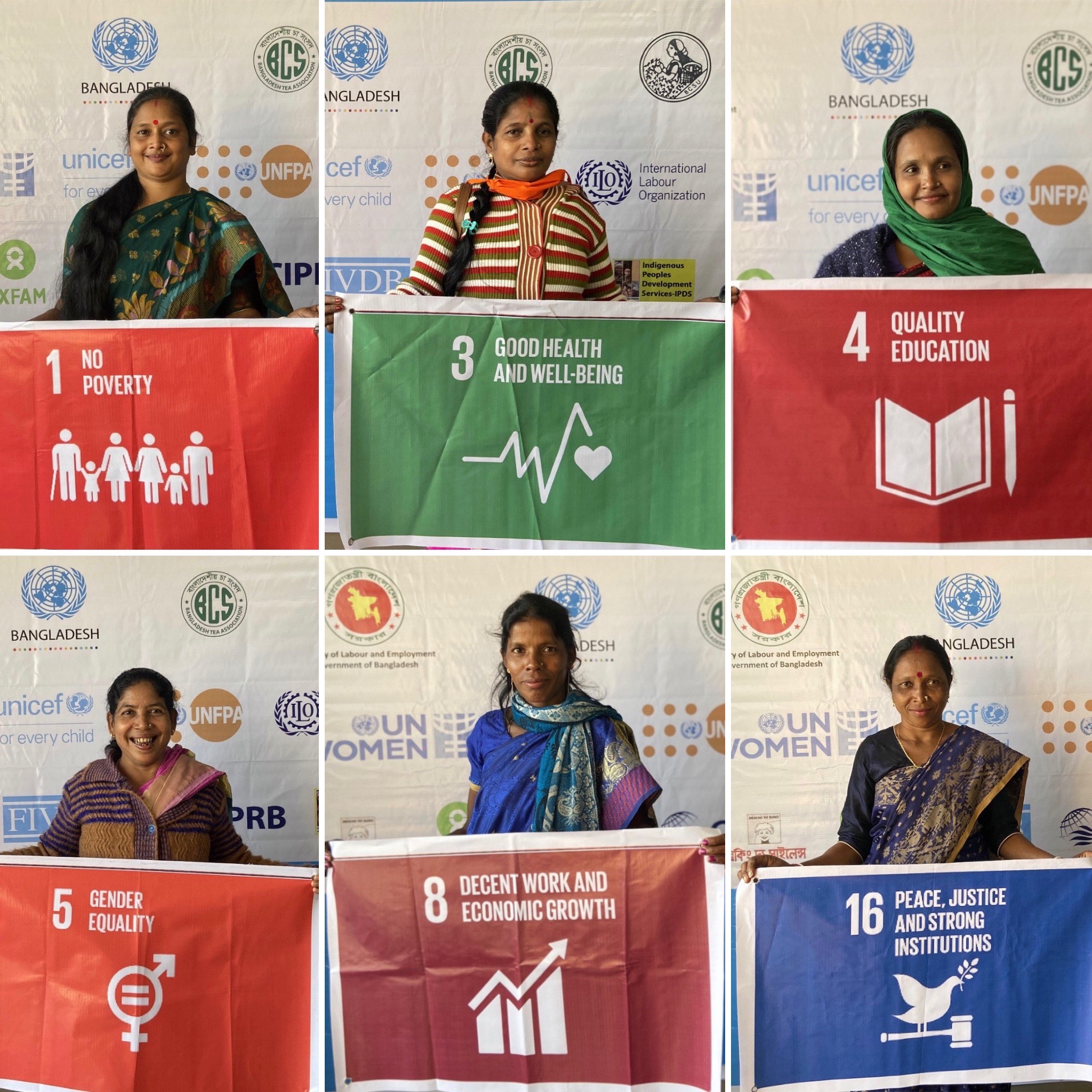Enhancing Social Protection for Female Tea Garden Workers and their Families in Sylhet Division, Bangladesh
The programme brief description
Through this Joint Programme, female tea garden workers and their families in Sylhet Division, one of the most left behind population groups of the country, will enjoy strengthened and more coordinated access to national social protection coverage and local social services, in a more empowering and non-discriminatory environment contributing to decent work. On the ground, the women and their families, as well as trade unions, will be more empowered to claim their rights to social protection and development, information and participation, as well as labour rights. A combination of upstream policy and legislative advocacy, dialogue and coordination; data generation, analysis and coordination; capacity development for increased system strengthening, service delivery and access, and individual and institutional empowerment and skills training, will be jointly carried out by partnering UN agencies. The programme’s objectives include:
By 2021, tea garden workers and their families, especially women, enjoy increased social protection and access to quality public services, notably health, as well as education and decent work, in a safer and more empowered environment.
- Policy and Legislative Reform: Government has improved capacity to identify and address the gaps in social protection policies, Bangladesh Labour Law and other relevant laws, and to prioritize actions for tea garden workers, particularly women and children.
- Data and Analysis: Government and Bangladesh Tea Association and other actors have increased capacity to monitor the situation of tea garden workers and their families with primary disaggregated data on maternal and child health, education and skills, child protection, occupational safety and health, working conditions, collective agreement and empowerment of women and children
- Duty-bearers for Service Delivery: Public service providers, including Government and tea garden owners have improved capacities to strengthen systems and implement services/programmes mandated in the laws and policies to improve living and working conditions of tea plantation workers, especially women and their family members
- Rights-holders to Access Services: Tea garden workers and their families, especially women and children, are empowered with increased awareness and knowledge of social protection, human rights and labour standards to access public services including family planning, child and maternal health and nutrition, education and skills training, and child protection services.
- Rights-holders to claim Accountability and Women’s and girls’ rights: Tea garden workers, notably women workers, have increased capacity to negotiate and exercise collective voice to influence policies and hold the Government of Bangladesh and the Bangladesh Tea Association accountable for enhanced integration of tea garden workers in the national social protection system.

Photo credit: Tanjim Ferdous
Approach
The Joint Programme will lead to acceleration of multiple SDGs, follow a gendered life cycle and Leave No One Behind approach and address the right to development and related human rights. It also addresses a systemic barrier to gender equality and women’s and youth empowerment that have resulted in exclusion of the tea garden workers, notably women, in accessing basic social services. Yet the programme will also improve social security coverage for men living in tea garden worker communities.
Target Groups
Women, children, girls, youth, persons with disabilities, older persons, minorities, indigenous peoples, rural workers, migrants, human rights defenders, victims of slavery, torture, trafficking, sexual exploitation and abuse, persons living in extreme poverty.
Quick facts
UN Agencies:
ILO, UNICEF, UNFPA, UN Women
National Partners:
Ministry of Labour and Employment; Prime Minister’s Office; Ministry of Health and Family Welfare; Ministry of Women and Children Affairs; Ministry of Social Welfare; Ministry of Primary and Mass Education; Ministry of Public Administration Divisional Commissioner; Bangladesh Shishu Academy
Duration:
Financial Information



















